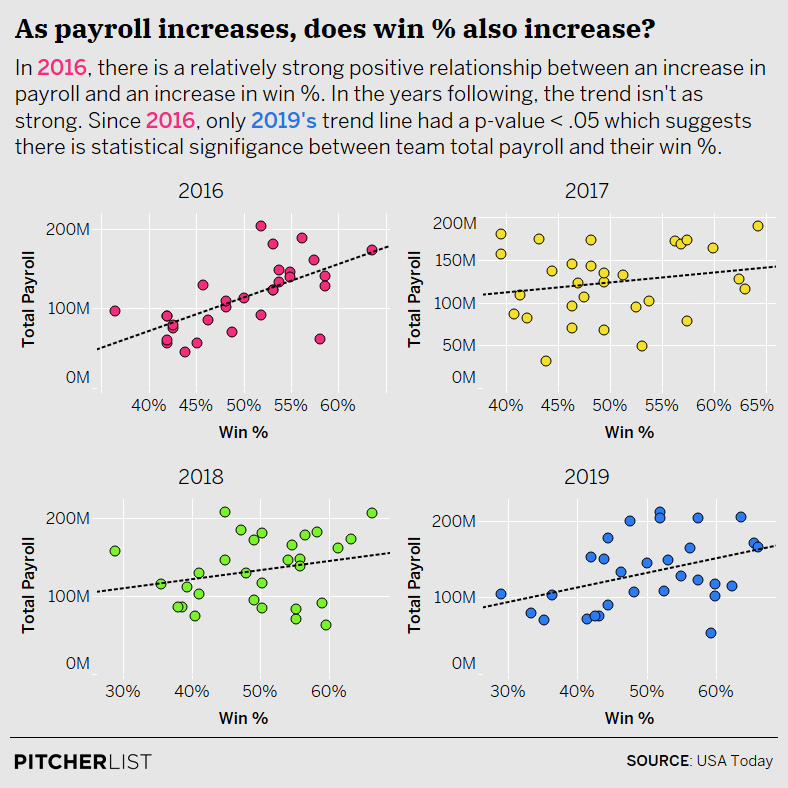Scott Boras has become more than an agent. He is the agent. Boras represents the interests of his own clients, but the half-baked metaphors and allegories he slides into interviews and press conferences convey a message all players and agents can get behind: Major League Baseball teams should spend money.
So when Boras praised the Toronto Blue Jays management last Thursday, it sent a message. When discussing the 2020 offseason, Boras told the Fan 590 the Jays are what he’d always hoped they should and could be, sitting “atop the aggressive markets in baseball.”
“I think they have the lamp,” Boras said, “and now they’re looking for the light bulb.”
The Jays struck quickly, signing Robbie Ray to the first free-agent deal of 2020, and have interest in seemingly every other player on the open market. From Toronto’s public statements and Boras’ shameless flirting, it is clear the Blue Jays checkbooks are open. And in that aggressiveness, the willingness and ability to spend money when others cannot, Toronto may have found the newest market inefficiency.
In a COVID-19 world where payrolls have shrunk and employees are let go, baseball franchises claim they have been hit too. With Major League Baseball’s free agency already on the decline for the past five years, with accusations of collusion being thrown around and premier players staying on the market into late February, the market is set to crater. But in 2020, at the intersection of a declining free market and a COVID-suppressed economy, an opportunity has arisen. This winter’s “Moneyball” may be as simple as just spending money.
“Winner of the offseason” has become a pejorative term in baseball, used to describe free-spending GMs who jeopardize their teams’ future for a chance at today, but the reality is winners of the offseason, more often than not, win in the season too.
In the 2019-20 winter, the Cincinnati Reds doubled-down on their acquisition of Trevor Bauer the previous summer. They signed free agents Shogo Akiyama, Mike Moustakas, Wade Miley, and Nick Castellanos, aligning the push with the promotion of top prospect Nick Senzel and breakout of Jesse Winker. Though Miley only started four games, the Reds FA acquisitions accounted for 33.3% of their batting WAR as their win-pace jumped nine games from ‘19 to ‘20.
The Padres 2018-19 offseason acquisitions of Ian Kinsler, Garrett Richards, Adam Warren, and Manny Machado totaled $327.4 million and drew the dreaded “offseason champion” tag. And the subsequent meager four-win jump between ‘18 and ‘19 drew criticism. But just a year later, in large part due to the breakout of Fernando Tatis Jr. and others, the offseason spending bared fruit and the Padres posted a 99-win pace and the franchise’s first playoff series victory since 1998.
The three highest-spending teams in the 2019-20 offseason were the Yankees, White Sox, and Dodgers — the first, seventh, and tenth best teams in the MLB this year. Spending as a practice is on the decline despite the top contracts rising, and it’s even sometimes vilified by aging curves and ownership groups. The correlation between spending and success isn’t always direct, but in 2020 those willing to spend will have a unique advantage, and payroll will become an incomparable weapon.

Data Visualization by @Kollauf on Twitter
Who Can Take Advantage
Former Mets General Manager Jim Duquette told ESPN sports talk radio there “might only be 4-5 teams looking to really spend this offseason, with the rest of the league hoping to cut 20-30% off of their payroll.”
And those five teams — the squads entering or in competitive windows with payroll flexibility — are no secret. The Detroit Tigers, whose current projected payroll of $54 million is $120 million below their all-time high ($174 million in 2015), are predicted to sign or connected with seven of MLB Trade Rumours top 50 free agents.
The Blue Jays, whose $74 million projected 2021 payroll is less than half than when they appeared in back-to-back ALCS in 2015 and 2016, are, on top of being lauded by Boras, predicted to sign or connected with 19 of MLBTR’s top 50.
While some team execs are telling the New York Daily News that “the reality is there is going to be a lot less dollars for the players this winter,” others are already sending out offers. Some of the teams most poised to spend — the Tigers, Jays, Mets, Red Sox, Rangers, and possibly others — more by luck of circumstance than anything else, are fringe playoff teams or predicted postseason contenders in an expanded playoff. They are uniquely situated to weaponize a financial position to bust open a competitive window. The players in free agency are as good as usual, but the competition for them is not.
Teams with spending capacity can and should exploit the market, buck the trend of fear of free agents and use this weird, once in a century economic situation to their advantage. MLB franchises spend millions of dollars trying to gain any competitive advantage, and in 2020 that advantage is clear: spend money.
There are risks and limitations to buying free agents. The Chicago Cubs were the highest spending team of the 2018-19 offseason and improved from a 92 to 95 win team, but three seasons later the costs of that offseason are apparent. Theo Epstein has stepped down, the team’s core is floating on the trade block, and stars such as Kris Bryant are even in the non-tender discussion.
But things that were true when the Cubs threw money around in 2017-18 remain true this offseason. Spending is not a risk if done wisely. Sign more deals like Yu Darvish’s 6 year/$126 million, and less like the $38 million given to Tyler Chatwood, and you will be fine.
George Springer, D.J. LeMahieu, Bauer, and others who in any other offseason would likely get paid more and surely have more teams vying for their services, have a restricted set of destinations. Most of the league isn’t in the position to even be making competitive offers to big-ticket free agents and teams with high payrolls who bled money in a fanless season could justifiably step back from the market in 2021, but those that can spend should.
Winning the 2020 offseason will mean more than ever before because fan support will be essential to overcome the pandemic-related economic setbacks that may linger. Whatever team(s) nab the top assets in free agency will have taken advantage of a stagnant market and will be set up to win more than just the admiration of Scott Boras in 2021.
Photo by Icon Sportswire | Adapted by Doug Carlin (@Bdougals on Twitter)

